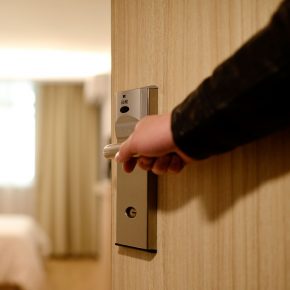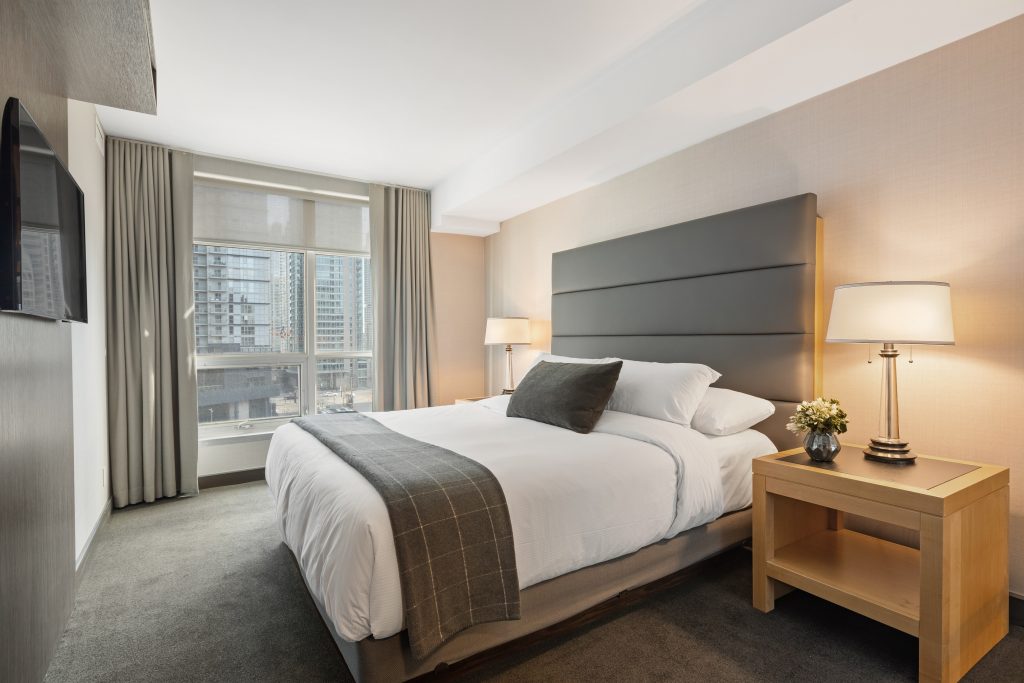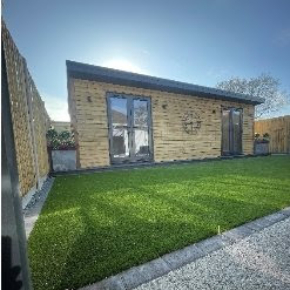
Hush: Why acoustics need higher priority in hotel refurb and new build
Whilst technology and sustainability may be the driving forces in the design of new hotels and refurbishments, it is important not to overlook the basics and ensure the proposed design will be sufficient to meet one of the most important comfort factors – acoustics. Hush explains more…
The post-pandemic outlook for the UK hotels sector is positive, with the PwC Hotels Forecast 2021-2022 predicting that revenues per available room (RevPAR) will be back to between 43% and 100% of pre-pandemic levels by the end of 2022. Some hotel operators have used the quieter pandemic-affected period to invest in renovation work and upgrading. This means, in many cases, properties are in good shape to accommodate both business and leisure guests as they return to travel and tourism in ever increasing numbers.

However, for those hotel operators with redevelopment plans or new hotel construction on the horizon, the proposed design should address one of the most common complaints from hotel guests – noise. Whether external, such as noise from a busy road, or noise coming from adjacent rooms, lifts, services or hotel corridors, a survey by workforce management software company Deputy found that that noise was one of the most frequent issues that hotel staff have to deal with. It is also the reason for many poor online reviews which can be reputationally very damaging.
Dealing with these issues at the design stage will prevent stressful situations for guests and staff and contribute to the long term appeal of the hotel. Acoustic insulation measures integrated into the building at the design stage – just like passive fire protection products – are, therefore, crucially important to deliver the best experience.
How to improve sound insulation in hotel rooms
In any connected building, such as a hotel, apartment or semi-detached house, it is virtually impossible to stop the transmission of sound from one space to another. But there are proven ways to significantly reduce sound transmission.
Building services, lifts, door closers and other mechanical elements can, of course, be specified with noise potential in mind. For example, super-quiet extractor fans or doorsets are dampened for impact sounds on opening and closing can be selected in place of standard products. But the scope for the biggest and most predictable improvements is with the walls, floors and ceilings.
Where external noise is the problem, a better glazing specification or secondary glazing in conjunction with wall treatments can make a big difference. But often noise issues stem from within the building and it is here where Hush Acoustics’ fully tested acoustic systems can be deployed to tackle the issues.
Our acoustic systems can effectively reduce nuisance noise in hotel rooms in a number of ways, not least addressing:
– Sound from people talking or the televisions in adjacent rooms
– Noise from communal areas such as bars, the hotel lobby or restaurant
– Creaking floors
– Impact noise such as that from light switches, furniture or footsteps in rooms above.
With the right approach, each hotel room can become much more isolated from impact sounds and also separated sufficiently so airborne sound waves will struggle to cut through.
Sound insulation systems for hotel refurbishment
The systems available from Hush Acoustics give architects a solution for every type of construction, which is particularly useful for hotel refurbishment projects.
For example, the HD1045 MF Acoustic Multi-Panel System and HD1044 Acoustic Basement System both allow a separating floor/ceiling to be upgraded acoustically from the ceiling side only. As a result, the floor above does not need to be disturbed. Conversely, where the ceiling needs to remain intact, the HD1030 Hush System LP allows sound reduction measures to be added to the separating floor from the floor side only.
Where separating walls are concerned, Hush Acoustics offers a variety of systems to treat timber and metal stud walls along with different masonry constructions. A slim walling lining system – HD1041 – is also available which reduces sound transmission with only minimal loss of room space, making it perfect for smaller hotel rooms.
Creating more comfortable communal spaces
The acoustic strategy for any hotel refurbishment or new build should also consider nuisance noise in spaces such as reception areas and lobbies, restaurants, bars, gyms, leisure facilities, meeting rooms and conference venues. In buildings which feature lots of hard surfaces, most typically wooden or tiled floors, large expanses of glazing and plastered walls, the acoustic comfort level can often be very poor due to sound reverberation.
Reverberation happens when sound waves reflect off hard surfaces back into the room. The result is higher levels of background ‘ambient’ noise which gradually increases to uncomfortable levels as a room becomes busier. The solution is to add softer materials, such as fabric sofas, curtains and carpets, which will absorb sound waves rather than reflect them, but these furnishings can often be at odds with aesthetic goals as well as adding expense and maintenance requirements.
This is another area where Hush Acoustics can help. Our range of sound absorber panels, which can be mounted on walls and ceilings, is specifically designed to reduce the extent of hard surfaces in rooms. Products such as Hush-Absorber 50 can be specified in a wide range of colours to suit the application, and a ceiling hanging solution is also available – Hush Baffles.
Get the right advice from an acoustics insulation specialist
If you are a hotel operator, or an architect seeking to improve the acoustic environment within a hospitality setting, Hush Acoustics will help you develop a specification that delivers the perfect internal environment.
As a UK manufacturer of acoustically insulting products and systems for buildings of all kinds for over 30 years, we have a wealth of technical know-how and resources to guide you to the right solution.
Hush Acoustics Ltd
Unit 2, Tinsley Industrial Estate
Shepcote Way
Sheffield
South Yorkshire
S9 1TH
Tel: 0114 551 8685
Fax: 0151 944 1146
Visit Supplier's page
Latest news

29th April 2025
Senior pledges to ‘bee’ part of the solution with new biodiversity initiative
Senior Architectural Systems has installed its first on-site beehive, marking another step forward in its commitment to sustainability and biodiversity.
Posted in Articles, Building Industry News, Building Products & Structures, Building Services, Curtain Walling, Doors, Glass, Glazing, Innovations & New Products, news, Restoration & Refurbishment, Retrofit & Renovation, Sustainability & Energy Efficiency, Walls, Windows
29th April 2025
West Fraser range delivering key benefits for South-East carpentry company
An experienced carpenter and building site manager who has recently set up his own company is using high performance panel products from the West Fraser range.
Posted in Articles, Building Industry News, Building Products & Structures, Building Systems, Case Studies, Garden, Restoration & Refurbishment, Retrofit & Renovation, Sustainability & Energy Efficiency, Timber Buildings and Timber Products
29th April 2025
CPD Courses Available Online From Ecological Building Systems
Ecological Building Systems, a leading supplier of natural building products for sustainable construction, has revealed its comprehensive CPD programme for the year ahead.
Posted in Articles, Building Industry Events, Building Industry News, Building Products & Structures, Building Services, Continuing Professional Development (CPD's), Information Technology, Innovations & New Products, Insulation, Restoration & Refurbishment, Retrofit & Renovation, Seminars, Sustainability & Energy Efficiency, Training, Walls, Waste Management & Recycling
29th April 2025
WindowBASE launches new prospect databases at FIT Show
Visit WindowBASE at the FIT Show to see first-hand how it helps companies find new customers – the company is launching an easy-to-use, intuitive platform on Stand G16 at the NEC Birmingham from 29th April – 1st May.
Posted in Articles, Building Industry Events, Building Industry News, Building Products & Structures, Building Services, Doors, Exhibitions and Conferences, Glass, Glazing, Information Technology, Innovations & New Products, Posts, Publications, Research & Materials Testing, Restoration & Refurbishment, Retrofit & Renovation, Windows
 Sign up:
Sign up: